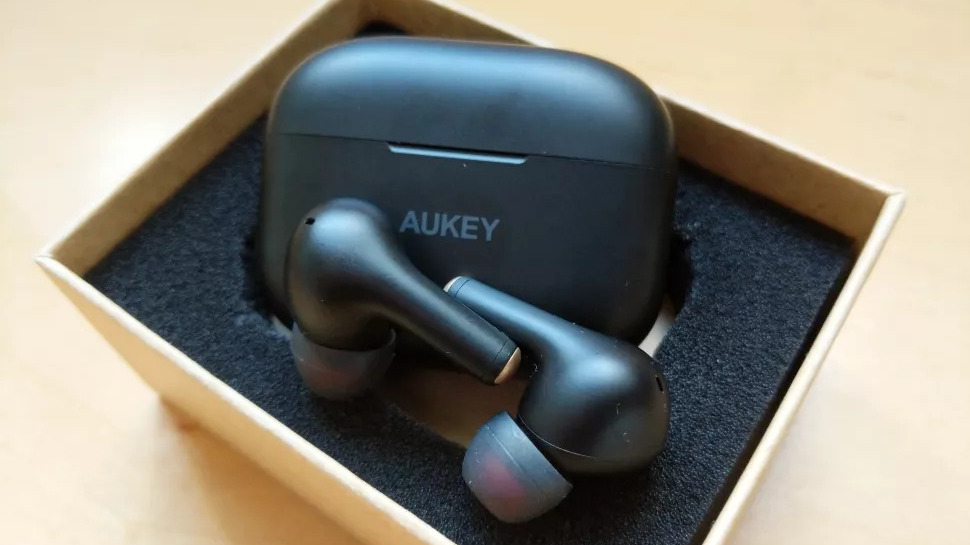
Top accessory manufacturer Aukey has been kicked off Amazon following a massive data breach that detailed a pay-for-play scheme in which manufacturers would pay customers for positive reviews. Tomtop and Mpow were also implicated in the scheme.
The report, uncovered by SafetyDetectives, found direct messages between Amazon vendors and customers where positive reviews were exchanged for free products. Once a product was loaded with positive reviews, it would naturally climb on Amazon's product page, which would see an increase in sales and, as such, legitimate reviews would follow.
- Tesla Model M motorbike concept is stunning — and I’d like one now
- Amazon Prime Day — date and deals to expect
- Plus: Sennheiser’s new earbuds cost as much as a MacBook Pro — seriously?
Editor's Note: A representative for Aukey has provided the following statement to Tom's Guide regarding the matter, but it does not address the veracity of the allegations.
In a statement to Tom's Guide, an Aukey representative said, "I don't know the details of what has happened either. We are currently working on finding a solution. The company has not been significantly affected at the moment and the daily work routine is also proceeding as normal."
DigitalTrends reports that Aukey, Tomtop and Mpow products have been completely removed by Amazon. Attempts to click on Aukey EP-T27 earbuds links take you to an empty Amazon page with "sorry" written across the top and a picture of a dog.

As of this writing, the Mpow storefront seems to still be live at Amazon, although all of its products are shown as "currently unavailable." The Tomtop storefront does not appear to be available, but there are still Tomtop-branded products up for sale.
It's unclear if other brands were affected.
Get instant access to breaking news, the hottest reviews, great deals and helpful tips.
As detailed by SafetyDetectives, accessory makers would work with a third-party to inform potential reviewers which products needed extra 5-stars. People would then buy the products on their personal accounts, leaving said 5-star review. The reviewer followed up sending a message to the vendor with a link of their Amazon profile along with PayPal information. It's then that the reviewer would receive a refund through PayPal, and the product they reviewed could be kept as a form of payment or reward.
SafetyDetectives says it's found 75K accounts all potentially being used to post illegitimate reviews. The breached and unclaimed ElasticSearch server, which was unencrypted, found a total of 232,664 Gmail accounts, some that could potentially identify individuals. While the server is located in China, it included users in the U.S. and Europe. The server has since been secured.
SafetyDetectives posits that the server was owned by a third-party that was acting with Aukey and other sellers to round-up potential reviewers.
Interestingly, SafetyDetectives found that reviewers had to abide by certain criteria. This included waiting a few days before posting a review, having certain word-counts and, on occasion, posting a video review as well. SafetyDetectives also found that when approaching potential reviewers, this third-party used professional-sounding language to make the scheme look legitimate. Of course, the third-party never pointed out that writing fake reviews for compensation could, at the very least, violate Amazon's terms of service.
Some Twitter users have begun posting images of coercive messaging by Aukey that asks to submit an "honest review" for compensation. Tom's Guide has not independently verified these claims.
Obviously, brands like Aukey have already felt Amazon's wrath by allegedly breaking its rules. It's uncertain if any of the banned vendors will be allowed back on or if individuals will also have their accounts suspended.
Fake reviews on Amazon are not new, however. It's been a longstanding issue with the retail giant, as fake review publishing has become its own cottage industry. Luckily, there are browser extensions like Fakespot that can help buyers filter through illegitimate reviews.

Imad is currently Senior Google and Internet Culture reporter for CNET, but until recently was News Editor at Tom's Guide. Hailing from Texas, Imad started his journalism career in 2013 and has amassed bylines with the New York Times, the Washington Post, ESPN, Wired and Men's Health Magazine, among others. Outside of work, you can find him sitting blankly in front of a Word document trying desperately to write the first pages of a new book.
 Club Benefits
Club Benefits





